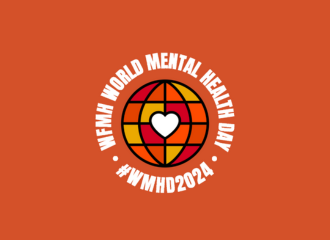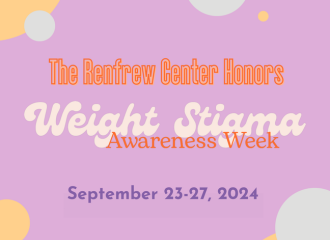Explore Categories

World Mental Health Day: The Best Mental Health Learning Resources [Updated for 2024]
World Mental Health Day helps raise awareness about critical mental health agendas. Here are the best learning and support resources in 2023.

Polycystic Ovarian Syndrome (PCOS) & Eating Disorders: What’s the Connection?
People with polycystic ovarian syndrome (PCOS) are more likely to develop an eating disorder. We look at theories on why the connection exists and what to do about it.

Weight Stigma Awareness Week: The Best Mental Health Learning Resources [Updated for 2024]
Weight Stigma Awareness Week is an annual event dedicated to raising awareness about the issue of weight-based discrimination and prejudice.

Lesser-Known Eating Disorders: A Brief Guide to ARFID, OSFED & Non-Clinical EDs
What are the lesser-known eating disorders? What symptoms do they typically present? In this post, we break down everything you need to know.

Meal Support for Eating Disorders: What to Do Before, During & After Meals
Meal support plays a critical role in eating disorder treatment and recovery. But how does it work and what steps are required? We break it down.

5 Ways a Vegan Diet Can Mask Eating Disorder Symptoms
How do you know if a vegan diet is 100% genuine or merely a socially acceptable way to engage in an eating disorder? We look at the signs.

How to Set Relationship Boundaries in Eating Disorder Recovery: 4 Essential Guidelines
Setting healthy relationship boundaries is an essential step for anyone in eating disorder recovery. Here are 4 tips to help you identify and communicate your needs.

Genetics & Eating Disorders: 10 Tips to Reduce Risk (Even If You Have a Family History)
Are eating disorders caused by genetics or the environment? We break down what the research says and offer tips for what to do about it.

Intuitive Eating & Eating Disorders: Principles, Treatment Challenges & 3 Ways to Implement
Intuitive eating plays a big role in eating disorder treatment and involves a nuanced approach to healing one’s relationship with food. Here’s the breakdown.
Reach Out to Us
Talk with a Program Information Specialist at the number above to learn more about our
services and to schedule an assessment. Or, fill out the information below and we will contact you.
